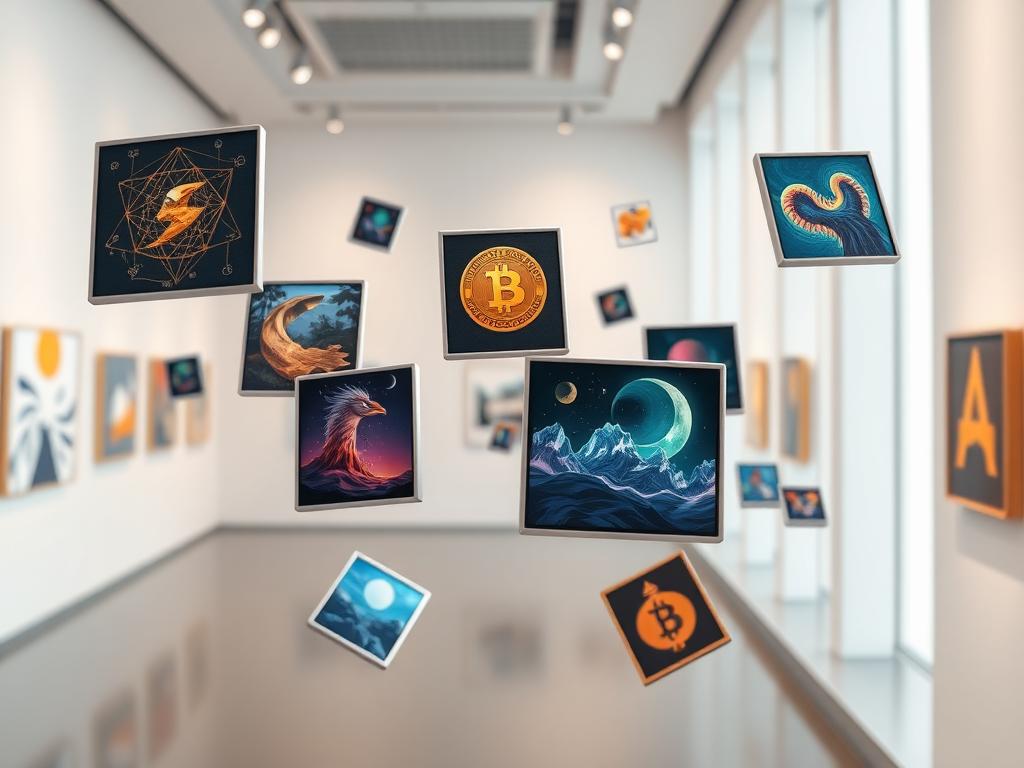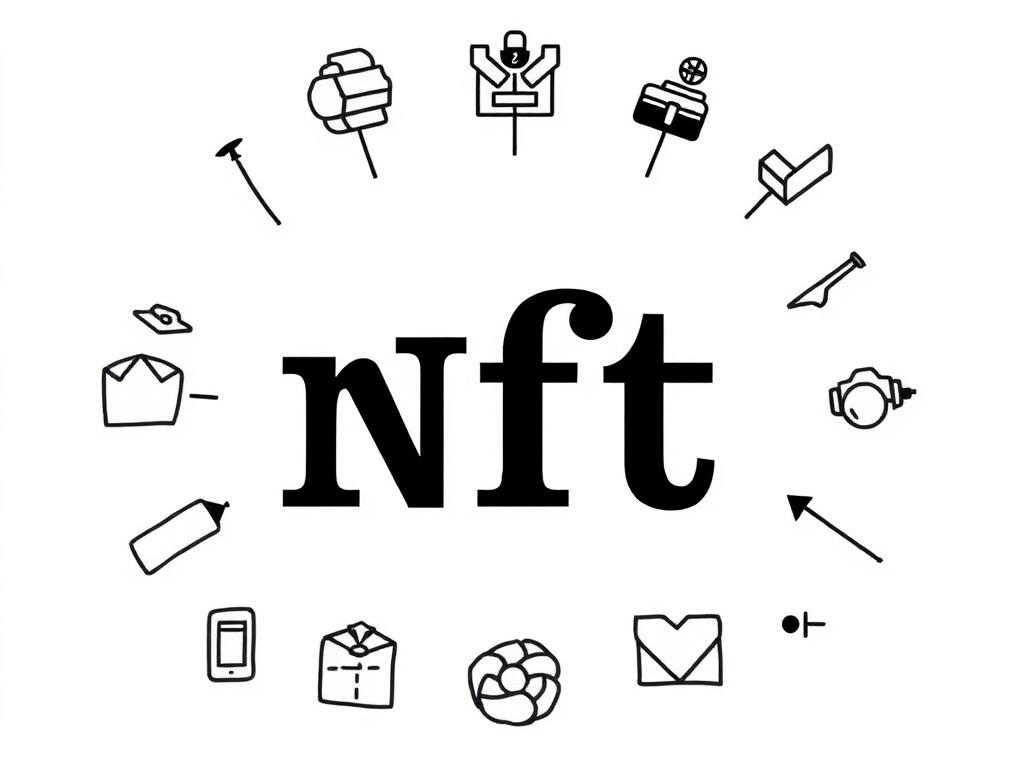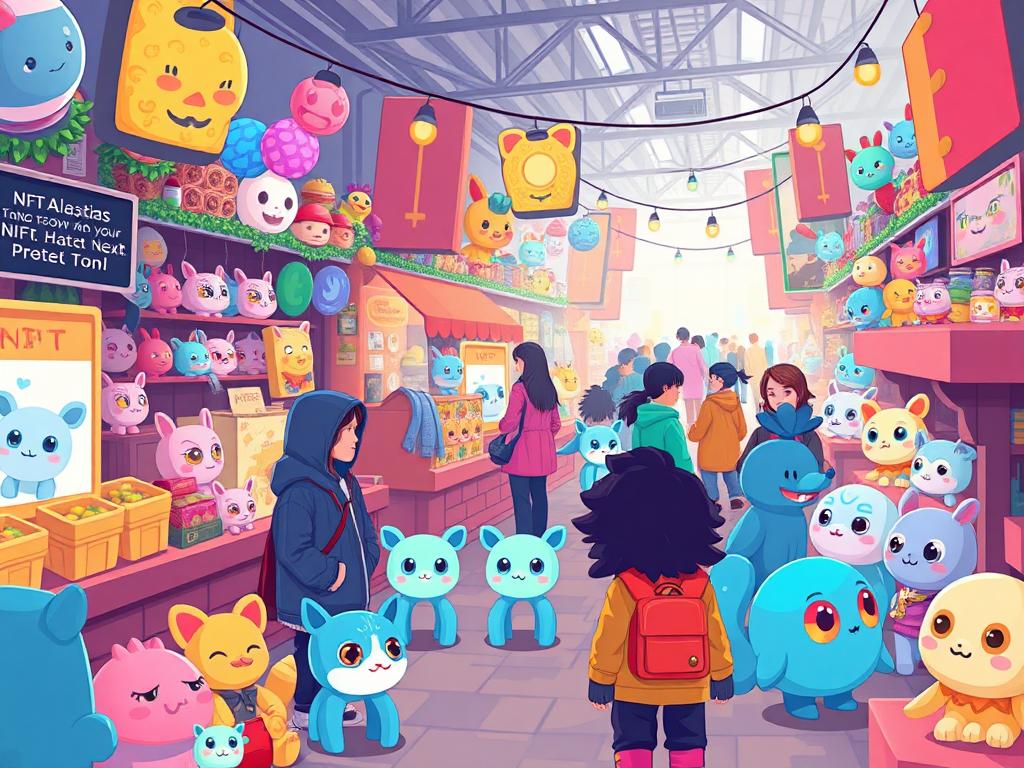

In the vast digital landscape, non-fungible tokens (NFTs) have emerged as a groundbreaking force, revolutionizing how you perceive ownership and value. At their core, NFTs are unique tokens secured through blockchain technology, providing a transparent, decentralized ledger that ensures the authenticity and exclusivity of digital assets. Unlike traditional cryptocurrency, which is fungible and exchangeable, NFTs embody singular digital items, becoming the preferred medium for digital art, virtual goods, and online memorabilia. As you delve into the bustling NFTs marketplace, you unlock a treasure trove of opportunities for trading, investing, and owning divergent pieces of the digital frontier.
Stepping beyond the basics, NFTs encapsulate much more than mere digital collectibles. They leverage smart contracts on platforms like Ethereum to govern each transaction and embed NFT metadata to preserve an asset's unique properties and provenance. Through tokenization, they transform a spectrum of assets into verifiable ownership records, laying the foundation for digital scarcity and value retention. Engaging with NFT platforms presents you with innovative avenues in NFT creation, where you can mint your digital expressions, partake in vibrant auctions, and observe emerging NFT trends. Secure your innovations through NFT encryption and manage them with an NFT wallet, navigating a thriving NFT ecosystem that is constantly evolving with new standards and benefits.

NFTs, or non-fungible tokens, are digital assets that represent ownership of unique items on the internet. Unlike typical cryptocurrencies such as Bitcoin, which are fungible and interchangeable, NFTs possess distinct properties that make each one different from another. These unique tokens are created using blockchain technology, with Ethereum being a popular platform, to ensure that each digital collectible is verifiably unique and indivisible.
Consider an NFT as a digital certificate of authenticity stored on a decentralized ledger. This innovative technology records and verifies the ownership and uniqueness of digital treasures such as digital art, music, or even virtual real estate. The secured metadata embedded in NFTs ensures their originality, preventing unauthorized duplication while enabling their creators to be recognized and rewarded.
What most people don’t see about NFTs is the sophisticated interplay between smart contracts and NFT standards that makes all the difference in securing digital ownership. Behind the scenes, these smart contracts automatically execute sales, royalties, and transfers, streamlining NFT trading and enforcing rules without intermediaries. This automated system facilitates seamless NFT auctions, ensuring transparency and trust within the dynamic NFTs marketplace.
NFTs are more than just digital novelties; they are reshaping how you experience ownership. With NFT platforms, users can dive into NFT creation, tokenization, and engage with communities. Its limitless potential cultivates an expanding NFT ecosystem, marking a new era of digital scarcity and virtual goods ownership while embracing future NFT trends.

At the core of NFTs is blockchain technology, a decentralized ledger system that securely records and verifies transactions without the need for intermediaries. This innovative technology ensures that each non-fungible token is uniquely identifiable and digitally scarce. By leveraging a public ledger, NFTs guarantee authenticity and permanence for digital assets, enabling creators and collectors to engage confidently within the NFTs marketplace.
Smart contracts form the backbone of NFT operations. These self-executing contracts—most commonly found on the Ethereum platform—automate processes like sales, royalties, and transfers of ownership. Built-in code outlines terms and conditions, eliminating the need for manual intervention and ensuring transparency and trust. Smart contracts have transformed NFT trading, enabling seamless integration of NFT standards into the expansive NFT ecosystem.
For example, the digital art industry benefits greatly from the precision of smart contracts. Artists can establish automated royalties for each secondary sale, ensuring long-term compensation for their work. This aspect of digital ownership is reshaping artist-investor relationships, aligning interests and fostering creativity. Such a system highlights how NFT platforms are addressing opportunities and challenges for artists in the ever-evolving digital landscape.
Another pivotal component of NFTs is the encrypted NFT metadata that contains essential information such as ownership history and unique identifiers. This metadata safeguards the individuality of virtual goods, enabling tokenization of assets otherwise intangible. Whether it’s digital art or digital collectibles, the metadata ensures permanence and resistance to tampering, maintaining the integrity and value of each asset.
The technology behind NFTs continuously evolves. From robust encryption to secure NFT wallets, each technological advancement reinforces the integrity and user experience within the NFT ecosystem. As the landscape grows, you'll encounter new NFT trends and platforms, pushing the boundaries of what digital assets can achieve. The ongoing evolution reflects the vast potential and diverse applications of NFTs across industries.

NFTs derive value from several unique factors. Chief among them is digital scarcity, as each non-fungible token represents a one-of-a-kind asset that cannot be replicated. This scarcity is maintained through blockchain technology and solidified by NFT metadata, making the items attractive to collectors and investors. When participating in the NFTs marketplace, the rarity and exclusivity of digital art or digital collectibles are often key drivers of value.
NFT ownership confers actual digital possession, further influencing value. On one hand, enthusiasts argue that owning NFTs grants access to unique tokens and their associated rights, a novel concept in the realm of digital assets. On the other hand, critics suggest that while blockchain ensures authenticity, the perceived value is still largely driven by market speculation and NFT trends. These contrasting perspectives shape how you might evaluate and engage with NFTs.
The role of NFT platforms in elevating value cannot be understated. Through effective NFT creation and auction processes, platforms ignite interest and set new benchmarks for what digital assets can achieve. Smart contracts, particularly on Ethereum, secure transactions and provide automated benefits such as royalty payments, adding to the allure for creators and investors. As the NFT ecosystem continues to evolve, understanding these pieces enriches one's comprehension of what truly drives the worth of non-fungible tokens.

NFTs have revolutionized digital art by providing artists a means to tokenize their creations, ensuring digital ownership and authenticity through NFT metadata. Within this realm, artists can utilize blockchain technology to reach a global audience eager for unique digital collectibles. NFT platforms facilitate these connections, allowing creators to achieve recognition and compensation within the evolving digital economy. The deep integration of smart contracts ensures seamless transactions and continuous royalties for artists.
In the gaming industry, NFTs enable the ownership and trading of virtual goods, such as skins, weapons, or in-game real estate. Looking at this through the lens of player empowerment, we can see that NFTs introduce new dimensions of player engagement. They allow gamers to hold and trade unique tokens across platforms. This groundbreaking approach highlights the innovative technology that underpins much of the growing NFT trends within virtual ecosystems.
The real estate sector is also tapping into NFT potential, exploring tokenization to sell fractions of physical properties as NFTs. This innovative method facilitates broader investment opportunities and makes real estate more accessible to everyday investors. Such applications demonstrate the flexibility of NFT standards in transforming traditional investment landscapes, offering new channels for wealth-building and resource allocation.
Music is yet another domain where NFTs offer unique solutions. Artists can release limited-edition tracks or albums as NFTs, giving fans exclusive access while preserving digital scarcity. This approach not only enhances creator-audience relationships but also ensures artists retain greater control over their work and revenues. As the NFT marketplace continues to expand, these use cases illustrate the diverse opportunities uncovered by this transformative technology.

To buy NFTs, you will first need an NFT wallet that supports cryptocurrency like Ethereum, as most NFTs are bought and sold using this digital currency. Once set up, you can explore various NFT platforms, each offering a diverse range of digital art, collectibles, and virtual goods. After choosing an NFT marketplace, simply connect your wallet, browse, and bid or purchase your desired non-fungible tokens directly.
Selling NFTs involves creating or owning NFTs you'd like to trade. NFT creation can be done on specific platforms where you mint your digital assets into unique tokens. After minting, you can list them for sale, often through NFT auctions or fixed-price sales. Utilize smart contracts to automate and protect your transactions, ensuring a seamless sale process. This all takes place on a transparent decentralized ledger, reinforcing trust.
One of the most frequently asked questions about the NFT ecosystem is how to ensure security during transactions. Here’s the answer: always verify platforms' credibility, utilize secure NFT encryption, and double-check the authenticity of unique tokens you're interacting with. This enhances your digital ownership experience and protects against potential fraud, thus amplifying the NFT benefits enjoyed by traders and investors alike.
Participation in NFT trading or NFT investing offers opportunities to engage with a burgeoning market characterized by digital scarcity and innovative technology. As you delve into this dynamic realm, maintaining awareness of NFT standards will help you navigate safely and effectively. With continued investment in understanding these processes, you can be part of an exciting and rapidly growing digital asset landscape.

Navigating the NFT marketplace comes with its share of potential risks. Due to the decentralized nature of blockchain technology, the irreversible nature of transactions can be a double-edged sword. Unsuspected users might find themselves locked into unwanted trades or falling victim to scams. Given the complexity of smart contracts, even minor errors in their code can have significant repercussions on NFT ownership and trading outcomes.
Think of investing in NFTs as sailing in uncharted waters. Just like navigating unknown seas, it works because of careful preparation and attention to detail. In the NFT ecosystem, understanding NFT standards, metadata, and potential vulnerabilities are crucial. Without these, you may find yourself adrift, at risk of losing your digital assets due to unforeseen blockchain challenges or volatile NFT trends.
NFTs demand keen attention to the legitimacy of platforms and artists. Many have experienced the frustration of purchasing replicas or tokens lacking proper NFT creation and authentication. Since NFTs carry with them an inherent risk of counterfeit art or unreliable NFT auctions, due diligence is key to safeguarding your unique tokens and ensuring legitimate digital ownership.
Moreover, the energy-intensive processes associated with Ethereum's blockchain raise environmental concerns, impacting the long-term sustainability of NFTs. As the NFT industry grapples with these ecological implications, innovative technology solutions are being sought to mitigate carbon footprints. Understanding these environmental effects and seeking platforms with greener practices will contribute to more responsible NFT investing and engagement with digital collectibles amidst the ongoing digital scarcity challenges.
Get free resources, tips & tricks, exclusive news, and special offers by joining the Cryptonite Newsletter.